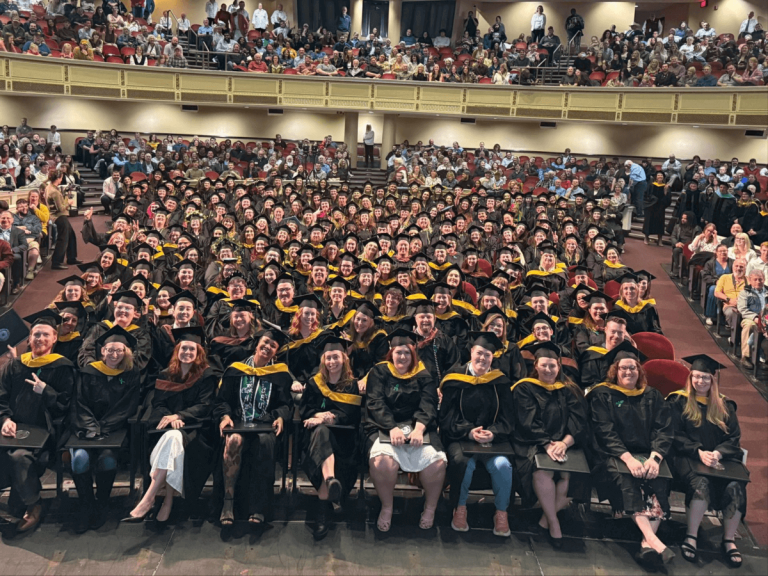The popular bumper sticker that reads “No Farms, No Foods” remains true, yet the realities of global climate change have changed the way that the next generation of farmers is being trained at Unity College.
Few, if any, college agriculture programs have yet followed Unity’s lead. In time, they will.
The Sustainable Agriculture program at Unity College is not only training the next generation of farmers, it is teaching them to flourish in a deeply scarred world that will stretch traditional methods of agriculture to the breaking point. The farmers who survive in the future will be those who have been trained to address global climate change.
Even with the disasters that are most assuredly on the way for agriculture in the United States, there is hope and opportunity on the horizon.
Experts from Unity College say that within a decade, Maine will need to produce most of the food New England consumes, with Maine likely to become the new breadbasket for New England due to the region’s access to land and water.
Unity College’s location in the farm country of Waldo County, just a stone’s throw from exceptional “hands-on” agricultural learning opportunities, has been ideal. The campus has gardens that last year produced 15,000 lbs. of vegetables and is only miles from the Maine Farmers and Gardeners Association (MOFGA) and Maine Farmland Trust, both of which are deeply concerned with creating opportunities for a new generation of farmers.
Climate Change is Changing Farming
There is no hiding from a future shaped by climate change, not for Unity College sustainable agriculture students. The program at Unity College gives students the skills they will need to pursue agricultural careers in a world beset by global climate change. Whether running a family farm, working as a soil scientist, breeding new varieties of crops, or working for food and agriculture nonprofits these students are graduating with an eye on the sky and the full expectation that their careers in agriculture will focus on adapting to ensure success.
Unity’s focus on climate change is on the leading-edge of agricultural education in America.
“I know of no other college or university sustainable agriculture program that is as focused on climate change,” said Doug Fox, Professor of Sustainable Agriculture and Director of the Center for Sustainability and Global Change at Unity College. Oddly, the industry itself is not focused on climate change … to its own imminent peril.
Fox says that in a recent survey of farmers, few expressed climate change as being important. The scientific data dictates a far different set of needs, problems, and priorities facing American farmers and the agricultural industry as a whole, Fox says.
Family Farms and Climate Change
“Why isn’t climate change more of a priority for family farmers in Maine and elsewhere?” Fox mused. “Probably for the same reasons that climate change isn’t a significant agenda item for Congress, because it is far easier to look at the short term and worry about problems that seem smaller and less scary. No one wants to think about something that will so significantly alter agricultural production in the United States that New England will need to develop its own resources because California and the mid-West will not have the water to do so. Denial may be a factor in the world at large, but it is not when it comes to what is happening on the ground at Unity College.”
If there is a silver lining for this region, it is that Maine is well poised to experience an agricultural boom within a decade or two at most, provided its leaders at the local and state levels make good decisions to ensure the expansion of family farms.
“I attend meetings with farmers and the room is filled with gray hair,” Fox said. “This state and entire country will be in crisis if we do not take immediate steps to nurture the next generation of farmers, keep up the infrastructure, and pass along farming knowledge.”
Part of that nurturing is to put policies in place that make farming a financial possibility in a world that values land speculation above all. The price for that kind of thinking will be steep, and the bill is coming due soon, Fox says.
Hands-On Leaning with Purpose
Sustainable agriculture students pursue many different experiential learning projects. Fox says that a recent project had students develop a plan for a local farm that includes means of dealing with new types of invasive pests that are most certainly on the way to Maine due to climate change.
“They are creating resilience plans for this farm using a sustainability science framework,” Fox said. The sustainability science framework at Unity College is the leading edge of 21st century environmental problem solving. It is at the vanguard of the mitigation of global climate change.
Unity College is a private college in rural Maine that provides dedicated, engaged students with a liberal arts education which emphasizes the environment and natural resources. Unity College graduates are prepared to be environmental stewards, effective leaders, and responsible citizens through active learning experiences within a supportive community.



